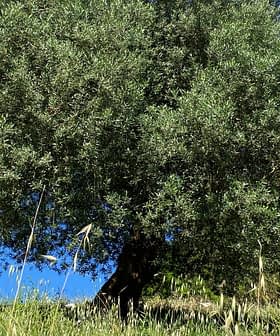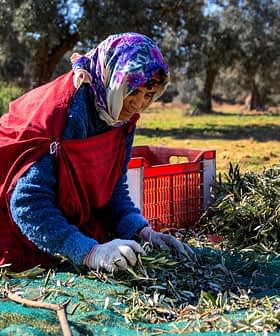Start Up's Technology Helps Olive Farmers Cut Costs, Increase Production
The founders of Elaisian say their technology reduced the costs of fertilizers, agronomic consultancy fees, and labor by 50 percent in tests.
Italian olive trees joined the internet of things last year when electronic devices took root in their olive groves and began communicating real-time data via Wi-Fi, to a platform developed to help olive producers cut costs and increase their yields.
It is essential for us to defend and to advance an asset as valuable as extra virgin olive oil.
Elaisian founders Giovanni Di Mambro, Damiano Angelici and Gabriele Allegrini came up with their high-tech solution for olive farmers last summer. The trio completed their first prototype in August and went on to found the company in November.
Angelici told Italy Europe 24, “I come from a family that has been working in the olive-growing sector for over 80 years and after the umpteenth lost crop, I decided I’d try and solve the problem.”
In tests, Elaisian’s technology reduced the costs of fertilizers, agronomic consultancy fees, and labor by 50 percent. Di Mambro told Olive Oil Times, “We made the first test in Sabina, land of olive trees, near Rome.” He added, “We did the research thanks to our agronomist and thanks to the University of Perugia that helped us with some studies.”
Remote, real-time monitoring of olive trees was made possible by the startup’s small electronic devices. One device on a central tree in an olive grove monitors around 500 trees in a 2‑hectare grove. The company offers free devices to farmers who sign up for their service.
Di Mambro told Olive Oil Times, “The devices don’t have a name. They are composed of a lot of sensors in order to collect climatological data, chlorophyll and soil components.”
Service costs depend on the size of the grove. Elaisian’s user platform gives olive producers access to real-time information on the status of their trees and offers advice as to any action needed. Communication to farmers is via text message and email.
Elaisian’s devices gather climatological data including rainfall, humidity levels, temperature and analyze chlorophyll and beta-carotene levels. The data is transmitted via Wi-Fi to the company’s platform, where it is scientifically analyzed. An algorithm is developed by cross-referencing the data received, against agronomic data produced in partnership with Perugia University.
Farmers receive science-based advice on optimizing irrigation and the effective use of fertilizers. They are also alerted to nutritional deficiencies, attacks by pathogens and any stress the trees are experiencing. The founders say the system pre-warns farmers of impending diseases and enables faster treatment when disease strikes.
Di Mambro told Olive Oil Times “Four producers are using the system and 16 others have paid us to receive it.” He added, “We have already signed other agreements for example with Fattoria Ramerino, Olio Torretta, Madonna dell’Olivo and Olio Barnaba.”
“Our goal is to monitor and protect all olive trees present in the world because they are a resource to be protected. Supporting technology in the agricultural sector can achieve important goals like that of maximizing production and improving processes of cultivation for each olive oil producer. It is essential for us to defend and to advance an asset as valuable as extra virgin olive oil.”
Elaisian’s plan for the future is to get more major Italian producers on board, then introduce their technology to the Spanish market.








